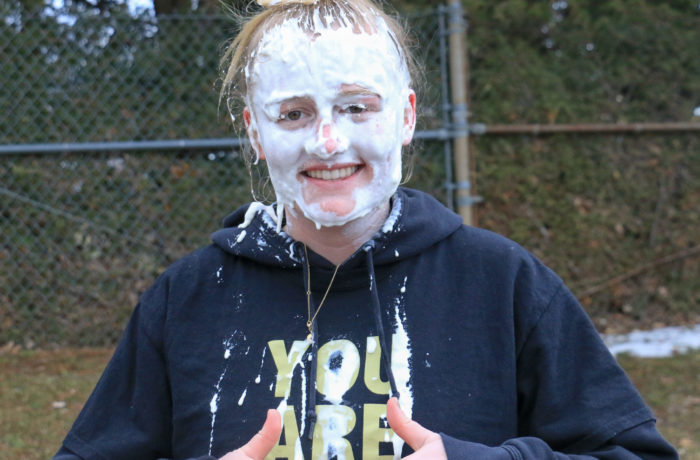By Courtney Burt
Staff Writer
The flu’s growing presence has made it difficult to control in communities like college campuses. This year’s influenza outbreak has already made a bigger impact on campus than last semester and even last year.
“In the last four weeks we have seen approximately 350 student visits, and about 80 percent of those were upper respiratory infections and flu-like illness,” said Mary Masson, director of student health services in an email.
This year, influenza has resulted in an abnormally high number of confirmed cases around the country and some deaths. There have been 14,676 flu-related cases reported in hospitals nationwide between Oct. 1, 2017 and Jan. 27, 2018, according to the Centers for Disease Control and Prevention (CDC).
Compared to previous years, this influenza season has been the deadliest. Influenza this year has been reported as more dangerous than the 2009 swine flu epidemic, which claimed about 12,000 lives in the U.S., according to federal health officials at the CDC.
“Doctors are finding out that the vaccine was less than 20 percent effective this year,” said Ruby Ford, a registered nurse in Chicago, who explained that emergency rooms in Chicago are all on bypass because they’re filled with people who have the flu. Schools have also closed. “It’s bad,” Ford said.
So far the Bergeron Wellness Center has confirmed both A and B strains of influenza on campus, Masson said.
“We only test for definitive flu until the Vermont Department of Health deems that we have it on campus. After that, we assume that a student has the flu when they present with the following symptoms: sudden, severe onset; fever of 100 or more; chills, sweats, and body aches; dry cough,” Masson said.
The harsh influenza season has caused students inconveniences in their studies and travels.
One senior, Christine Morrison ’18 recalls, “I got the flu last semester, and I couldn’t go to class. I couldn’t get out of bed. It was awful. My mom drove up from Massachusetts to come get me. My housemates starting wiping down everything in the house with bleach wipes and everyone drank EmergenC all the time. I don’t believe in the flu shot, it doesn’t work – people always get sick when they get it.”

The flu shot has been a controversial topic, however, the CDC recommends, “Getting an annual flu vaccine is the first and best way to protect yourself and your family from the flu. Flu vaccination can reduce flu illnesses, doctors’ visits, and missed work and school due to flu, as well as prevent flu-related hospitalizations.”
Students are encouraged to stay home from class if they experience any flu symptoms to prevent getting other members of the community sick. It is advised for students and faculty to stay home until they have been fever free for a full 24 hours.
“I’ve had the flu before, but not this year. I took extra precautions to make sure I didn’t get it, like the flu shot and using hand sanitizer, but you never know,” said Jenn Uribe ’19. To prevent the flu in your own living space, especially if your roommate has the flu, be sure to wipe down counters, throw away tissues, and wash areas you touch often like door knobs and handles.
Professionals on the CDC website recommend, “A mask should be worn by infectious patients any time they leave the isolation room.” While it’s not uncommon for people to wear masks in public as well, there are other ways to prevent the flu from transferring between people.
“Hand hygiene is the number one way to prevent it,” Ford said. “Wash your hands and don’t touch your face. If you want help preventing it or shortening the life of symptoms you should take Zinc, Vitamins C & D, and herbal supplements. Get plenty of rest. Stop smoking if you do, and eat healthy,” Ford added.
Most importantly, to prevent the flu, Bergeron Wellness Center suggests online, “A yearly flu vaccine is the best prevention for the illness and is recommended for all college students. Other ways you can protect yourself from the flu include staying away from people who are sick, covering coughs and sneezes.”
Masson said for students experiencing severe symptoms, “If their fever last for more than a few days, they suddenly feel worse, of if their breathing becomes difficult, they should seek immediate care from us or from the UVM Medical Center Emergency Room. We should also see any student who feels that they have the flu and they deal with a chronic illness (like diabetes) or are immunosuppressed.”


